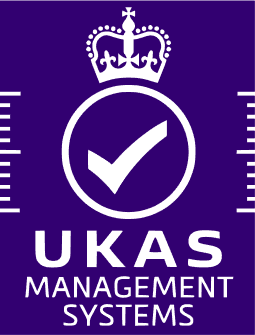Optimizing Workflows with Document Management
Jul 20, 2023
In today's data-driven world, businesses are creating and managing staggering volumes of information daily. Ponder the fact that 2.5 quintillion bytes of data are produced each day - a number set to increase exponentially. This enormous amount of data presents numerous opportunities for businesses to streamline operations and boost productivity. The key to unlocking this data goldmine is Document Management Systems (DMS), an innovative solution to traditional document management challenges. As premier partners with M-Files, we have in-depth knowledge of its offerings and recommend it as a high-quality DMS solution. However, it's crucial to note that the features we'll explore are not exclusive to M-Files but are integral to any robust DMS. If you're shopping around for a DMS, consider these features as your starting point to ensure you select a system that meets the requirements of today's dynamic business environment.
Understanding Document Management Systems
At its core, a Document Management System (DMS), such as M-Files, is designed to receive, track, manage, and store documents. Aiming to minimize reliance on physical paper, a DMS is an essential component in transitioning a traditional office into a digital, efficient workspace. However, reducing a DMS to just a digital filing cabinet fails to encapsulate its full capabilities. This comprehensive tool is engineered to streamline business operations, enhance collaboration, and amplify overall business productivity.
A DMS acts as the central hub of an organization's document management strategy. This system allows for seamless capture of documents, irrespective of their origination - paper or digital. Once within the system, documents are indexed according to various criteria, making them easily accessible and searchable. Offering an organized and structured approach to document storage, a DMS represents a significant improvement over disorganized stacks of paper documents in a physical filing cabinet.
One of the notable benefits of a DMS is its tracking feature. All interactions with stored documents are monitored, creating a transparent audit trail. This is particularly useful when multiple people are collaborating on the same document, as it provides real-time updates and maintains version control. Furthermore, the system simplifies identifying who made which changes and when, a crucial aspect in many business scenarios.
However, a DMS is not just about storage and retrieval. It also provides functionalities to efficiently manage the document lifecycle, including procedures like document approval workflows, timely archival or deletion of old documents, and ensuring regulatory compliance. All these features are designed to enhance the efficacy of business operations.
The Multi-Faceted Benefits of DMS
In this section, we will delve into the manifold benefits of implementing a DMS like M-Files. These benefits include reduced physical storage needs, improved security, better regulatory compliance, faster document retrieval, enhanced collaboration, cost reduction, and more efficient disaster recovery.
Reduced need for physical storage space: By digitizing documents, businesses can eliminate the need for cumbersome filing cabinets and storage units, freeing up valuable office space. This change fosters a more efficient, spacious working environment, and may even facilitate office downsizing, resulting in significant cost savings. Additionally, going digital removes costs linked to maintaining and accessing physical storage sites, such as transport and labor costs.
Improved security: A DMS excels in bolstering data security. Traditional document management systems often expose sensitive documents to risks of theft, loss, or unauthorized access. In contrast, DMS solutions like M-Files come equipped with robust security features, including permission-based access, audit trails, encryption, and automatic alerts for suspicious activities. This empowers you to control document access, track their usage and movement, and ensure confidential information remains secure.
Enhanced regulatory compliance: Ensuring compliance with industry and government regulations can be a daunting task when dealing with a high volume of documents. A DMS simplifies this process by automating document retention in accordance with legal requirements and facilitating efficient retrieval of specific files during audits.
Faster document retrieval: With a DMS, document retrieval is quick and effortless. The system indexes documents based on specific criteria, such as date, document type, or author, enabling you to rapidly search and retrieve documents.
Enhanced collaboration: A DMS provides tools that significantly enhance collaboration among team members. Multiple users can access and edit documents simultaneously from various locations, eliminating issues with version control and preventing duplication of effort.
Cost reduction: By streamlining document management processes and eliminating the need for physical storage, a DMS can lead to substantial cost savings. It can also reduce costs associated with document loss and recreation.
Efficient disaster recovery: In the event of a disaster, such as a fire or flood, a DMS can facilitate swift disaster recovery. Digital documents can be backed up and easily restored, ensuring business continuity and minimizing the financial impact of such events.
Choosing the Right DMS for Your Business
Choosing a suitable DMS can feel like a daunting task given the numerous options available. Here are some steps to help simplify this process:
Identifying Your Business Needs: Understanding your specific business needs is the first step in selecting the right DMS. Are your employees working remotely and need access to documents from various locations? Do you handle sensitive information that requires robust security features? What type of documents do you primarily deal with? The answers to these and similar questions can help you determine which features are a must-have for your DMS.
Considering the Types of DMS: DMS can be primarily categorized into two types: on-premise and cloud-based solutions. On-premise systems are installed and run on computers within the organization, whereas cloud-based solutions are hosted on the vendor's server and can be accessed via the internet. Each has its own benefits and drawbacks, and your choice should align with your business model and requirements.
Best Practices for Implementing a DMS in Your Organization
Implementing a DMS isn't merely about installing software; it involves strategic planning and a systematic approach. Consider the case of XYZ Corporation, which successfully transitioned to a DMS by following a methodical implementation plan. They started by identifying the needs of each department, then explored various DMS options, and chose a solution that best fit their requirements. A detailed plan was then developed, incorporating staff training schedules, data migration strategies, and contingency plans in case of unforeseen issues. This careful approach ensured a smooth transition with minimal disruption to their operations.
Exploring Future Trends in DMS
The future of DMS looks exciting with emerging trends primarily driven by advances in AI. For example, AI could be utilized to automatically categorize and index documents based on their content, significantly improving the speed and accuracy of document processing. Furthermore, machine learning algorithms can predict user behavior and suggest relevant documents, enhancing the user experience and efficiency.
Embracing Digital Transformation: The Strategic Value of DMS
Embracing a DMS like M-Files is not merely a tactical move; it's a strategic decision that can revolutionize the way your business operates. By providing a secure, structured, and efficient approach to document management, a DMS can significantly improve your organization's productivity, operational efficiency, and bottom line. The decision to adopt a DMS is an investment into the future of your organization, facilitating a seamless transition into the digital age.


